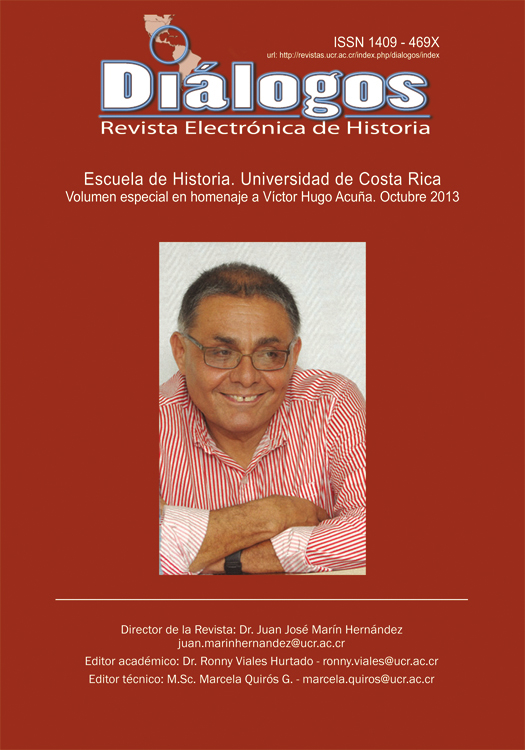Abstract
Este estudio investiga si el enfoque de medición de los insumos para determinar la competitividad del turismo, proporciona los elementos generales para la comprensión de la posición competitiva de un destino. La investigación se realizó en Costa Rica, en el contexto de la región centroamericana, con el objetivo de evaluar el impacto de la competitividad turística en este país.El estudio utilizó estadística descriptiva e inductiva para medir la evaluación de impacto. La investigación estableció que el enfoque de medición de los insumos no es fiable para medir la competitividad y el desempeño de un destino turístico que busca mejorar su calidad de vida. El uso de este enfoque no se recomienda para un proceso racional de toma de decisiones a nivel de destinos turísticos Se propone, a los gestores de destinos en Costa Rica, dos algoritmos para apoyarlos un proceso racional de toma de decisiones.
References
Acevedo, C. (2008). Los costos económicos de la violencia en Centroamerica. San Salvador: Consejo Nacional de Seguridad.
Bahar, O., and Kozak, M. (2007). Advancing destination competitiveness research: Comparison between tourists and service providers. Journal of Travel & Tourism Marketing, 22 (2), 61-71.
Blanco, E., Maquiera, J., and Lozano, J. (2007). Economic foundations of collaboration for sustainability. Paper presented for the Development Working Group at the Workshop in Political Theory and Policy Analysis.
Brida, J., Velázquez, C., and Aguirre, S. (2010). An Analysis of Expenditures by Cruise Passengers in Costa Rica. Anuario Turismo y Sociedad , 15 (4), 425-434.
Cañada, E. (2010). Tourism in Central America, a social conflict in a new setting. Turismo y conflictos socio-ambientales en Centroamerica. Managua: Enlace.
CEPAL. (2007). Turismo y condiciones sociales en Centro America: las experiencias en Costa Rica y Nicaragua. México: CEPAL.
Choi, J. (2003). Developing and economic indicator system (a forecasting technique) for the hotel industry. International Journal of Hospitality Management, I (22), 147-159.
Craigwell, R. (2007). Tourism competitiveness in small island developing states. EE.UU: World Institute for Development Economics Research.
Croes, R. (2006). A paradigm shift to a new strategy for small island economies: Embracing demand side economics for value enhancement and long term economic stability. Tourism Management, 27 (3), 453-465.
Croes, R. (2012). Assessing tourism development from Sen’s capability approach. Journal of Travel Research, 51 (5), 542-554.
Croes, R. (2011). Measuring and Explaining Competitiveness in the Context of Small Island Destinations. Journal of Travel Research, 50 (4), 431-442.
Croes, R. (2005). Value as a measure of tourism performance in the era of globalization: conceptual considerations and empirical findings. Tourism Analysis, 9 (4), 255-267.
Croes, R., and Kubickova, M. (2013). From Potential to Ability to Compete: Towards a Performance-based Tourism Competitiveness Index. Journal of Destination Marketing & Management.
Crouch, G. y Ritchie, J. (1999). Tourism, Competitiveness, and Societal Prosperity. Journal of Business Research, 44 (3), 137-152.
Dwyer, L., & Kim, C. (2003). Destination Competitiveness: Determinants and Indicators. Current Issues in Tourism , 6 (5), 369-414.
Enright, M., & Newton, J. (2004). Tourism Destination Competitiveness: a quantitative approach. Tourism Management , 25 (6), 777-788.
Gindling, T. H. (2009). South-South Migration: The impact of Nicaraguan immigrants on earnings, inequality and poverty in Costa Rica. World Development , 37 (1), 116-126.
Gooroochurn, N., & Sugiyarto, G. (2005). Competitiveness indicators in the travel and tourism industry. Tourism Economics , 11 (1), 25-43.
Hammill, M. (2007). Growth, poverty and inequality in Central America. México: CEPAL.
Hong, W. (2008). Competitiveness in the Tourism Sector. Heidelberg, Germany: Springer.
INCAE (2007). Costa Rica ocupa quinto lugar en competitividad turística en América. Retrieved October 31, from http://bit.ly/1apLQPY
Krugman, P. (1994). Competitiveness: A dangerous obsession. Foreign Affairs , 73 (2), 28-44.
Lall, S. (2001). Competitiveness indices and developing countries: An economic evaluation of the global competitiveness report. World Development , 29 (9), 1501-1525.
Li, G., Song, H., & Cao et.al, Z. (2013). How Competitive is Hong Kong against its Competitors? An Econometric Study. Tourism Management , 36, 247-256.
Mazanec, J. A., Wober, K., & Zins, A. H. (2007). Tourism destination competitiveness: From definition to explanation. Journal of Travel Research , 46 (1), 86-95.
Nost, E. (2013). The power of place: tourism development in Costa Rica. Tourism Geographies , 15 (1), 88-106.
Ritchie, J. R., & Crouch, G. I. (1993). Competitiveness in international tourism: A framework for understanding and analysis. Annual Congress of the International Association of Scientific Experts in Tourism. Baliloche, Argentina.
Ritchie, J. R., & Crouch, G. I. (2003). The Competitive Destination, a Sustainable Tourism Perspective. Wallinford, UK: CABI.
Ritchie, J. R., & Crouch, G. I. (2000). The competitive destination: A sustainability perspective. Tourism Management , 21, 1-7.
Ritchie, J. R., Crouch, G. I., & Hudson, S. (2001). Developing operational measures for the components of a destination competitiveness/sustainability model: consumer versus managerial perspectives. En J. A. Mazanec, G. I. Courch, & J. R. Ritchie et.al, Consumer psychology of tourism, hospitality and leisure (págs. 1-18). New York: CABI.
Ritchie, J., & Crouch, G. (2003). The competitive destination, a sustainable tourism perspective. Wallingford, UK: CABI.


